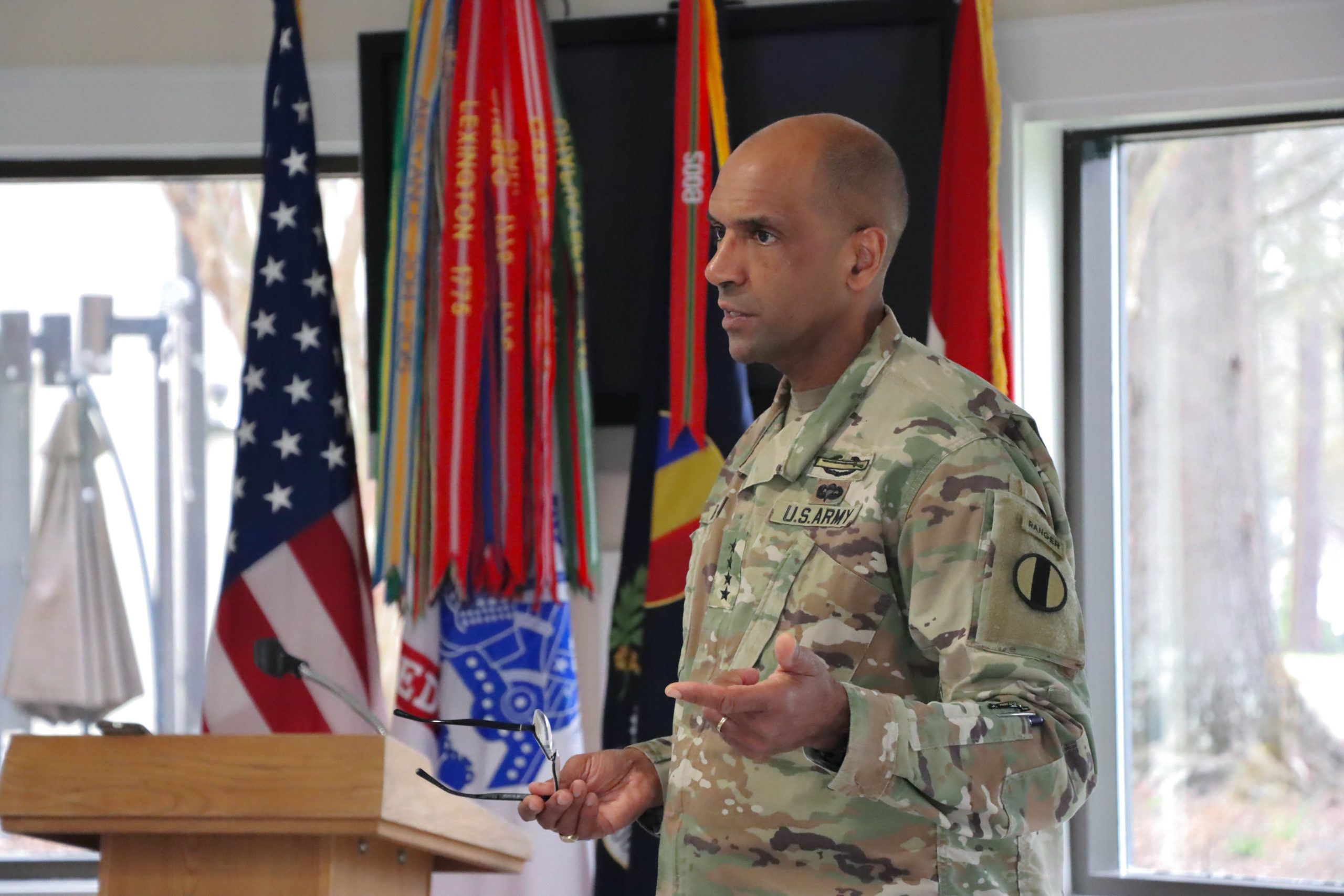By Nina Borgeson, TRADOC Communication Directorate
JOINT BASE LANGLEY-EUSTIS, Va. – Gen. Gary M. Brito, commanding general, U.S. Army Training and Doctrine Command, was the guest speaker at the Hampton Roads Chapter of the ROCKS organization luncheon held Mar. 24 at the Fort Eustis Club.
The luncheon provided a chance for Brito to share TRADOC’s priorities with the local chapter to help identify how the two organizations can continue collaborating on developing diverse, future leaders.
ROCKS, named in honor of its late founder, Gen. Roscoe C. Cartwright, was established in 1974 at Fort Leavenworth, KS. The organization, comprised primarily of military veterans, seeks to strengthen the officer corps through providing young officers with mentorship, leadership development, scholarships, and networking opportunities.
Brito shares a personal connection to the organization, as he became a ROCKS member early on in his military career as a captain while at Fort Benning, GA.
Brito spoke about the enlisted accessions challenges the Army is facing and how the young officers in attendance can help.
“This is not just a TRADOC fight – the whole Army is involved,” Brito stated.
He explained the Army must continue leveraging the support of organizations, such as ROCKS, to connect with the community and raise awareness on the career opportunities and benefits military service has to offer.

Brito also mentioned TRADOC’s upcoming 50th anniversary on July 1 and its plans to celebrate the significant impact it has made in the Army thus far.
“It was about that time [that TRADOC was established] when the world changed and developed new technology and new doctrine, and we’re right there again,” Brito stated.
He revealed that TRADOC is approaching a new epoch in its training and recruiting methods as it continues to evolve and adjust to the current social climate.
Organizations, like ROCKS, are an asset to maintaining the Army’s goal of incorporating diversity, equity, and inclusion into the force. Having a supportive group of Active Duty, Reserve, and retired officers to mentor and develop junior officers can encourage them to continue striving for a more diverse Army.
The officers raised questions on closing the accessions gap, increasing diverse representation within the recruiting process, and leader development.
Brito explained that three things all Soldiers should focus on improving, regardless of their path, are their character, reputation, and fitness. With those three pillars in mind, Brito believes, they will be set for success.
